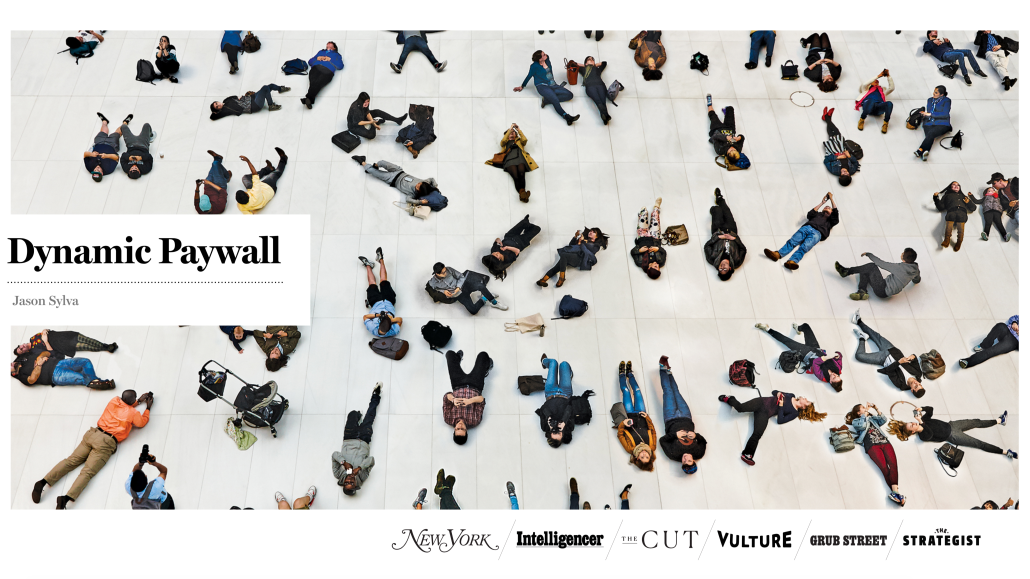
In theory, a flexible paywall allows a publisher’s audience to develop more of a habit, hit advertising campaign goals more easily, and test out more hypotheses. But it also risks confusing readers. In this presentation from Digiday’s Hot Topic: Subscriptions and Commerce, which took place in New York City this past February, hear from Jason Sylva, general manager of consumer marketing revenue at New York Magazine, as he discusses its decision to go with a dynamic paywall. The key hits:
- Information like when, where and how consumers are interacting with your content can help you determine strategic perimeters for the paywall.
- When introducing a paywall, many publishers run into problems with it impacting their advertising business. To find a balance, consider leaving the paywall off of one-off pieces, such as television recaps or event coverage, and instead drive it on some of the more in-depth reporting.
- Optimize, but also learn: Optimizing focuses on existing demand, and learning enables you to build a more sustainable business.
Listen to this presentation on the Digiday Live podcast here.
More in Media

Digiday+ Research: Dow Jones, Business Insider and other publishers on AI-driven search
This report explores how publishers are navigating search as AI reshapes how people access information and how publishers monetize content.

In Graphic Detail: AI licensing deals, protection measures aren’t slowing web scraping
AI bots are increasingly mining publisher content, with new data showing publishers are losing the traffic battle even as demand grows.

In Graphic Detail: The scale of the challenge facing publishers, politicians eager to damage Google’s adland dominance
Last year was a blowout ad revenue year for Google, despite challenges from several quarters.








